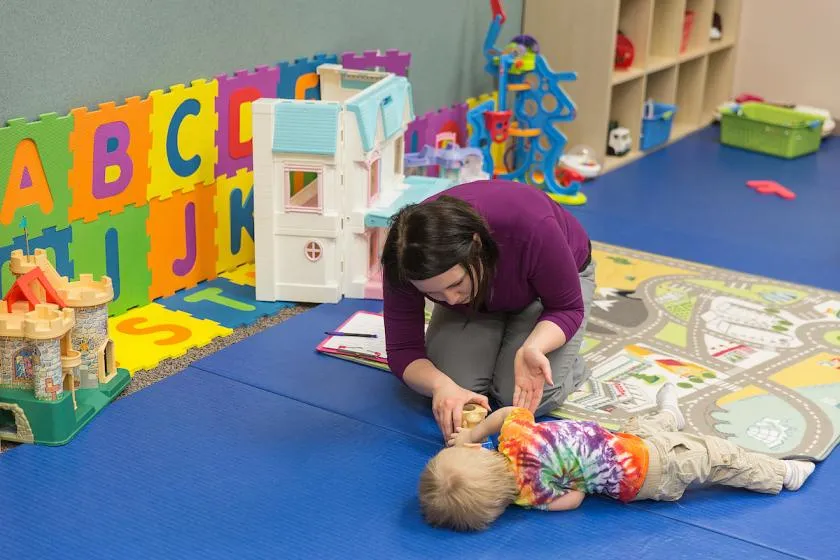Northern Michigan University's Behavioral Education, Assessment and Research (BEAR) Center has received nearly $500,000 from the Michigan Health Endowment Fund (Health Fund) to reach wider populations in more diverse settings in the Upper Peninsula, and to train more providers. The BEAR Center was established in 2017 to provide critical therapy services to individuals with autism and other behavioral disorders in underrepresented rural areas, and to serve as a clinical and research site for students pursuing careers in the field.
“The BEAR Center's mission is threefold,” said Director Jacob Daar. “It gives our community access to quality behavior analytic services, provides training and professional development to future and current behavior analysts, and facilitates student and faculty research in the areas of clinical practice and management. The Health Fund grant will help us to achieve this mission in several ways.”
Daar said the BEAR Center's services were previously limited to children ages 2-6 with specific language deficits. Through the Health Fund grant, they will now extend to the entire school-age population (2-22 years old) and address a wider range of behavioral difficulties. These include self-injurious and aggressive behaviors, tantrums, feeding issues and failures to remain in therapeutic or school settings.
The expansion of services will allow BEAR Center trainees to experience a greater range of clients and clinical concerns. Daar said students learning to apply behavior analytic consultation in this broader context will be better prepared to service the community once they graduate.
“The BEAR Center is always looking to find ways to improve clinical practice and staff training,” Daar added. “A component of this project is to provide the U.P. with a resource for paraprofessional training in behavior analytic strategies and techniques via a hybrid online and experiential training program. This program is a unique attempt to increase the availability and quality of behavior technician training, which we hope will support the application of competence and evidence-based best practices.”
Adam Prus, chair of the NMU Department of Psychological Science, said rural areas too often struggle to support the behavioral health needs of its community members due to limited funding and too few personnel.
“This grant provides a major funding initiative designed to creatively make enormous gains in the region's accessibility to behavior services by providing direct care to clients at the BEAR Center clinic, utilizing telehealth services for hard-to-reach locations through NMU's Educational Access Network, and sustaining these efforts into the future by providing online professionally certified behavior health training to a workforce of individuals who call the U.P. home. I'm excited for the work we'll see from the very talented BEAR Center team with this surge in financial resources."
The BEAR Center's work supported by the Health Fund is also representative of NMU's overall commitment to addressing rural health care challenges in the Upper Peninsula, and to developing an innovative and collaborative model to improve health and wellness outcomes in rural areas across the nation.
NMU Center for Rural Health Director Elise Bur said she is “ecstatic” about the Health Fund grant and looks forward to supporting and expanding collaborative efforts that improve the health and well-being of U.P. residents.
The Health Fund's 2020 grants program invested $14.6 million in 40 innovative initiatives in two categories: behavioral health; and nutrition and healthy lifestyles.
Find more information on the NMU BEAR Center here.

